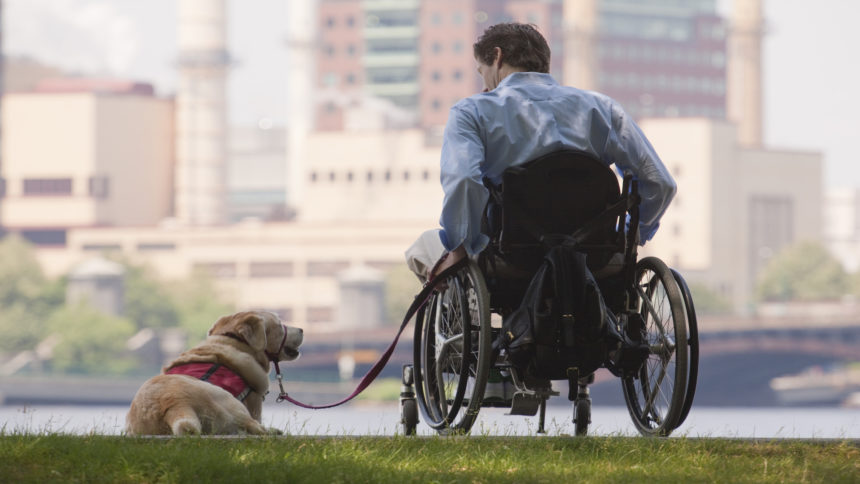
Editor’s note: Home Sweet Home is a feature appearing Mondays in McKnight’s Home Care Daily. The story focuses on a heartwarming, entertaining or quirky happening affecting the world of home care. If you have a topic that might be worthy of the spotlight in Home Sweet Home, please email Caroline Szachnowski at [email protected].
Sometimes a caregiver enters someone’s home with four legs, a wagging tail and an eagerness to serve.
Melissa Yetter, executive director of Rose Crest, part of Lutheran Homes of South Carolina, and founder of The Service Dog Institute, spoke about the pivotal role service dogs can play in home care.
“In the home, service dogs can be lifesavers,” Yetter said. “They can keep someone independent.”
While service dogs offer their owners a lot of comfort and peace, they are not to be confused with therapy dogs, she noted. A service dog is trained to perform specific tasks and act as a lifeline for the person it cares for.
“Service dogs must perform a skill or task for an individual assigned to them,” she explained. “A therapy dog is a well-trained animal that can go and perform comfort to the masses.”
Unlike therapy dogs, service dogs are protected by the Americans with Disabilities Act. They are animals specifically trained to provide a skill or task tailored to a particular individual with a disability. The tasks they are trained for vary but include pushing buttons, opening and closing doors, calling for help, helping people walk into their home, undressing or providing physical therapy,
When finding the right service dog fit, Yetter stresses that research is key as opposed to a random Google search.
One of the main factors to consider when searching for a service dog is whether or not the organization providing the dog is close to the person’s home and willing to work within that person’s time frame, according to Yetter. This is important because being close to the home allows the person to build a relationship with that organization, thus facilitating communication, she said.
It is also key to make sure that the organization trains dogs for the needs of the individual. For instance, Yetter explained, if a disabled person needs a diabetic alert dog, finding an organization that has a proven track record in successfully training the service dogs to provide those tasks is essential.
“A service dog is a tool,” Yetter said. “They’re pieces of equipment in someone’s home. They can help keep someone in their home living independently for a lot longer than if they were living by themselves before needing someone to come in to help.”
This article originally appeared on McKnight's Senior Living


